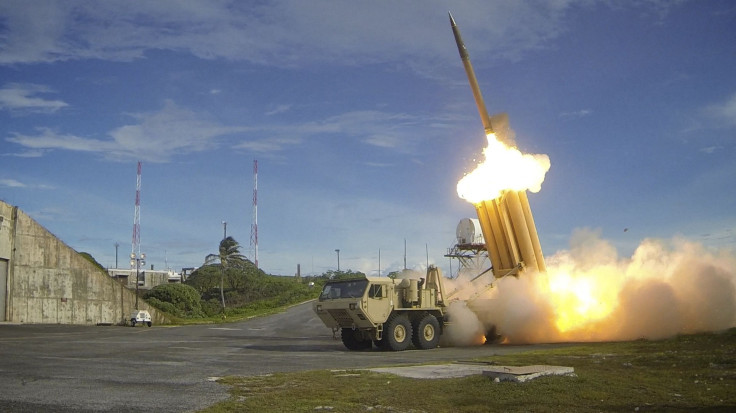Will China Go To War With US? THAAD Deployment Will Go Ahead ‘As Planned,’ US, South Korea Say

The deployment of a U.S. anti-ballistic missile system in the Korean Peninsula to counter North Korea’s nuclear threat will go ahead “as planned,” South Korea’s Ministry of National Defense said Tuesday. The plan to install the Terminal High Altitude Area Defense (THAAD) system has aggravated tensions between the two nations and China, which has strongly opposed the missile system, citing security concerns.
“[Washington and Seoul] agreed on the need to deploy the THAAD system of United States Forces Korea (USFK) as planned and to strengthen cooperation between the U.S. and South Korean military defense authorities and enhance the coordination in policy toward North Korea,” the South Korean ministry said, in a statement. “There is a possibility that that the North makes ‘strategic and tactical provocations’ as misjudging the transitional situations of the South and the U.S.,” it added, referring to the changing political scenarios in the two countries.
China has reacted strongly over Washington and Seoul’s plan to deploy the missile system. Beijing has unofficially imposed several economic measures in a bid to assert further pressure on Seoul, according to South Korean media. A Tuesday report by Yonhap News Agency stated that international cruise company MSC Cruises has reduced the number of its services connecting China and South Korea.
Sources told Yonhap that MSC, which operates cruises from the northeastern Chinese city of Tianjin to South Korea, now provides three fewer trips from the beginning of this year.
"Recently, some cruise ships departing from Tianjin have changed their stopover port from South Korea to Japan," an industry source told Yonhap. "It appears that they have reduced ships [directly] bound for Korea, as it has become difficult to get permission to travel to the country amid deepening tensions over THAAD."
Earlier this month, China, along with Russia, agreed to take countermeasures over the THAAD installation. The countermeasures will reportedly be taken to preserve interests of both the countries and to maintain strategic balance in the Korean Peninsula. Moscow and Beijing also urged the U.S. and South Korea to avoid deploying THAAD.
On Jan. 19, Sen. John McCain (R-Arizona) accused China of “bullying” South Korea over the move.
“China has cut off charter flights from South Korea, banned imports of South Korean cosmetics and other products, outlawed South Korean music, and threatened South Korean companies. China has done all of this to stop the deployment of a missile defense system, which is only necessary because China has aided and abetted North Korea for decades,” McCain said at the time.
© Copyright IBTimes 2024. All rights reserved.






















